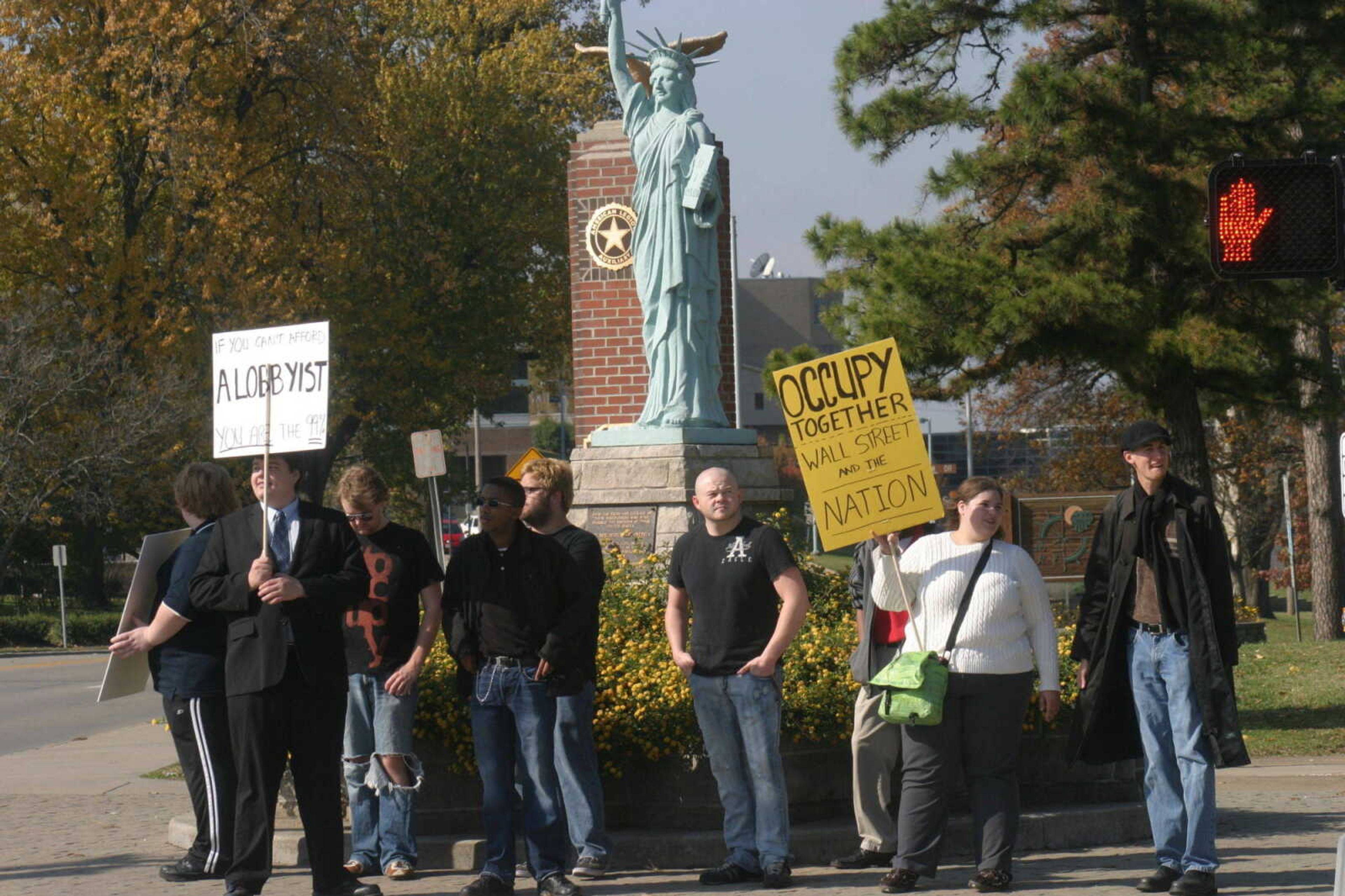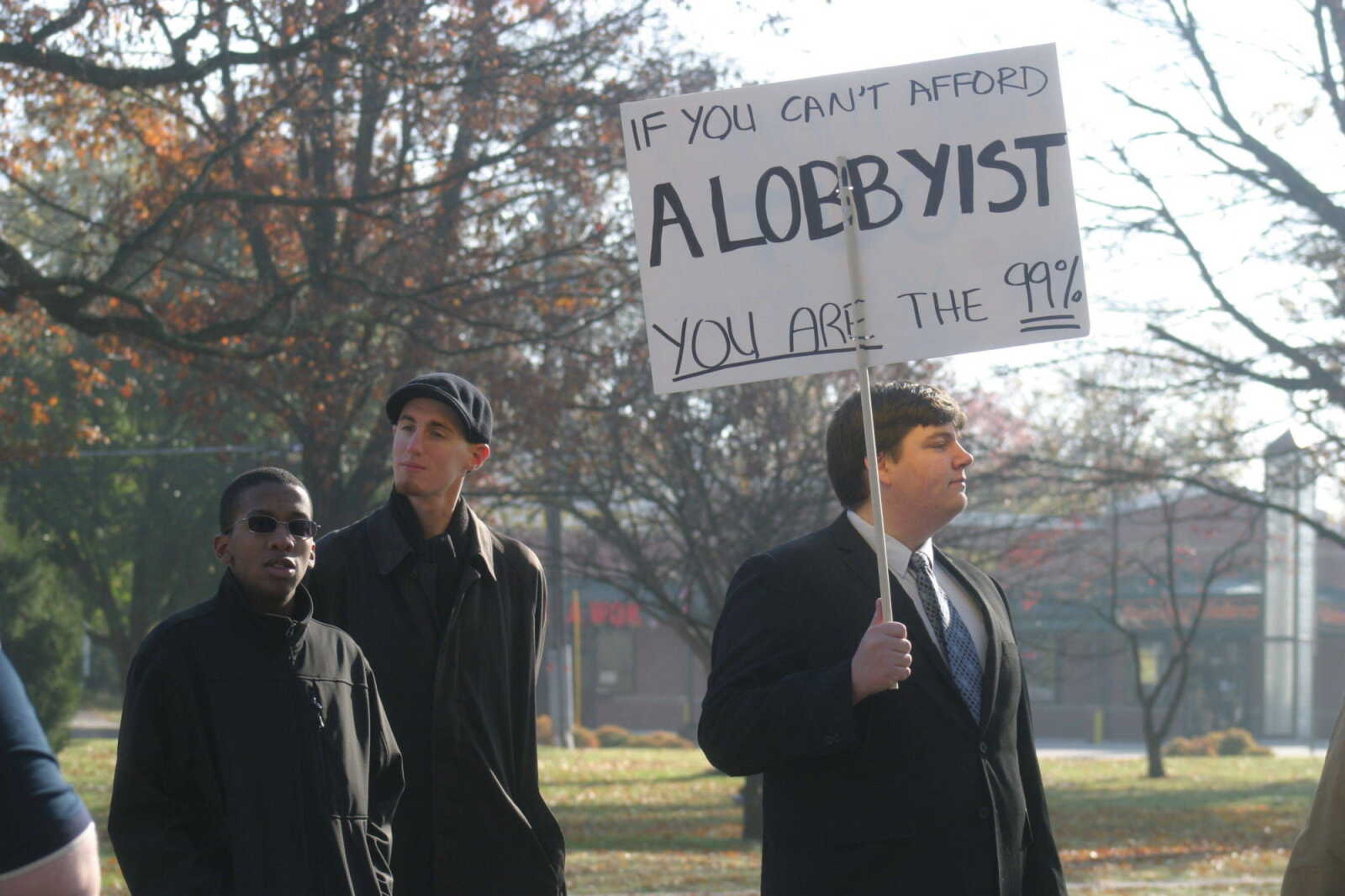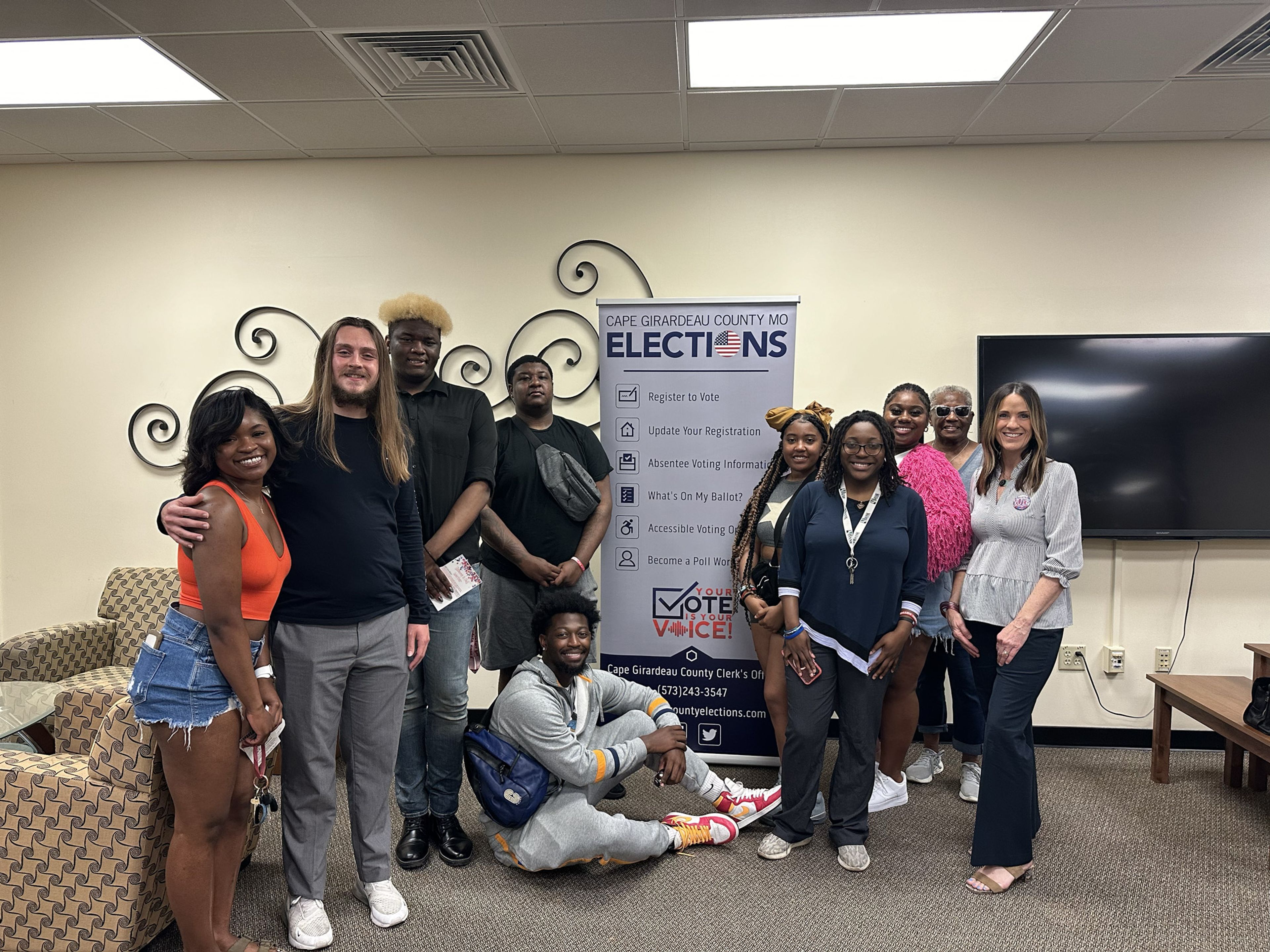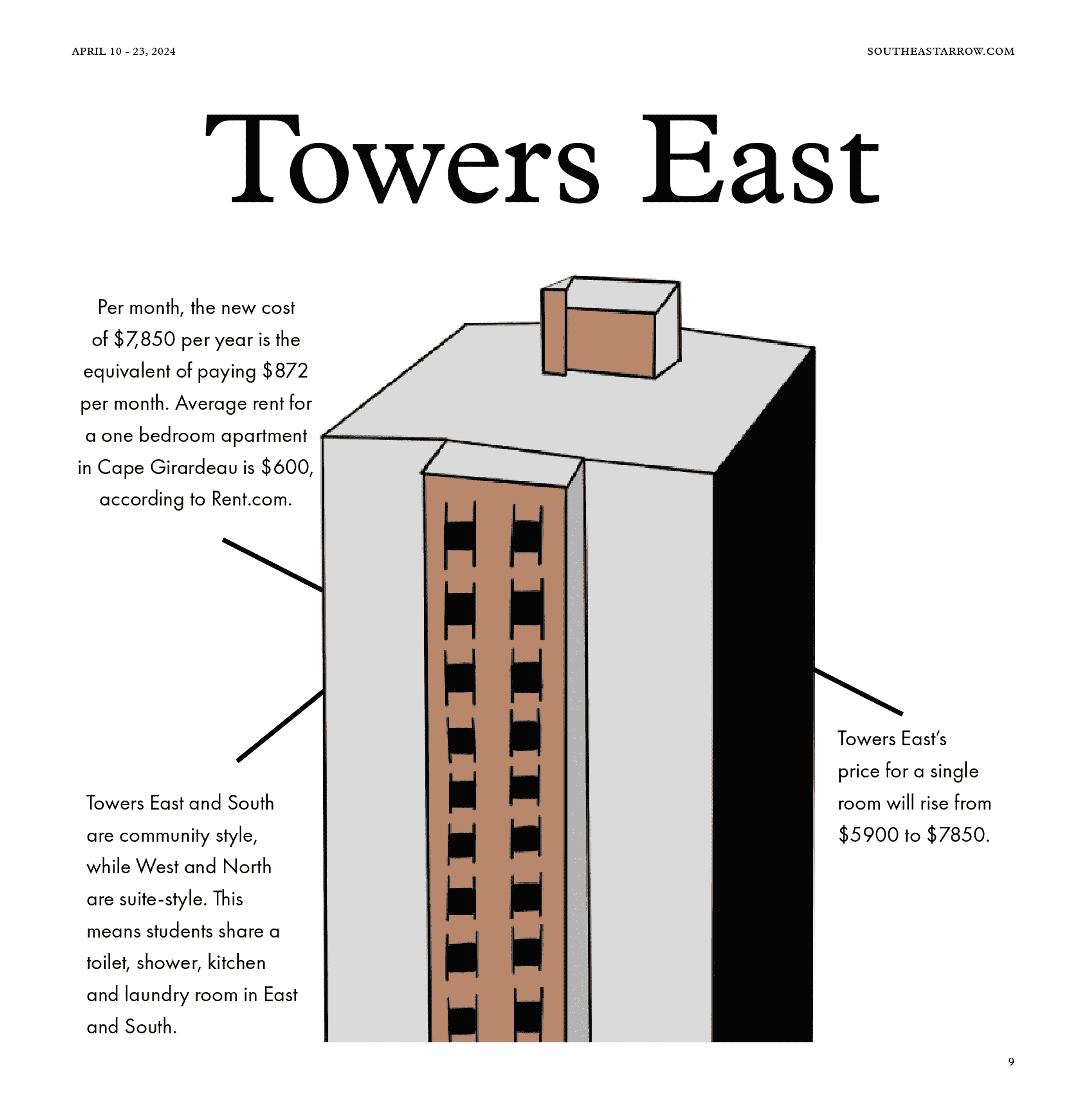A new ground zero was established just blocks from where the World Trade Center's twin towers once stood in downtown Manhattan on Sept. 17 when a group of demonstrators took over Zuccotti Park in protest of a number of issues, including CEO pay, corporate greed and unemployment.
Initially the group was dismissed and largely ignored, but just as critics waited for the moment to pass, the movement began to spread across the United States and around the world.
The Occupy Wall Street movement added Cape Girardeau to its list of participating cities on Nov. 5 when a group of about a dozen protesters marched through the downtown area, making stops in front of the Common Pleas Courthouse, City Hall and Capaha Park.
Carrying signs that stated, "We are the 99 percent," and "End corporate greed," the small group was met with support and opposition as city residents drove past the demonstration.
Southeast Missouri State University junior Kerrick Long, who participated in the Nov. 5 event, said he joined the Occupy Cape movement to show the nation that even small towns can get involved in the protests.
"I really wanted to show support for the Occupy movement that's going on across the country," Long said. "We're not necessarily occupying like big cities are, but at least we're showing solidarity."
Protesters from every social class and age group have started demonstrations in more than 300 American cities, and the movement became global on Oct. 15 when Occupy events took place in 82 countries.

Dr. Debra Holzhauer, associate professor of political science at Southeast, said the movement is a reflection of people's frustrations with the economy and with their overall position in it.
"It's about how 1 percent of Americans, whose economics are more assured than the other 99 percent, are getting more attention from the political parties and having their interests being taken care of," Holzhauer said. "For example, you have failing banks, and we saw a lot of the upper personnel of those institutions getting significant financial bonuses at the end of the year, even though they had just received bailouts from the United States government."
CEO pay isn't the only issue being taken up by Occupy participants.
The inability of many Americans to break into the middle class has topped the list of protesters' concerns.
According to a report from the Organisation for Economic Co-operation and Development, the United States ranks well below Canada, Germany, Finland, Sweden, Spain, Denmark, Norway and Australia in terms of the ability of its citizens to move up the socioeconomic ladder.
And it has become more difficult for them to stay there.
With the national unemployment rate hovering above 9 percent since 2009, the American middle class has dwindled in numbers.
According to the U.S. Census Bureau, the poverty rate reached 15.1 percent in 2010, which means more than 46 million Americans are living in poverty. That's the highest rate among developing nation, and a new record high for the United States.
Southeast graduate student Eric Ralfs, who was among the demonstrators on Nov. 5, said part of the problem lies in the fact that many people without a college education find it hard to get jobs that pay enough to support themselves and their families.
"Back in the 1950s, a high school degree could get you a decent number of jobs, but now most jobs require at least a bachelor's degree," Ralfs said. "The real kicker is that school is becoming more and more expensive. In Missouri, there have been more budget cuts to education, so more students are losing student loans, which keeps them from getting the education they need for jobs. It's a pretty ugly cycle."
Although a college education was once considered the golden key to gainful employment, in the current economic climate, even a college degree doesn't guarantee someone a job.
According to the U.S. Bureau of Labor Statistics, the unemployment rate for 16- to 24-year-olds with a bachelor's degree or higher stands at 13.2 percent. The overall unemployment rate for that age group reached 17 percent in July, prompting the media to dub the group the "the unemployable generation."
Add in the fact that student loan debt will top out at $1 trillion this year, healthcare costs are increasing and politicians in Washington D.C. are looking to reduce funding to multiple social programs in order to balance the budget, and you have the perfect recipe for social unrest and people taking to the streets.
"I think we've always accepted income inequality in this country," Holzhauer said. "But we've also always accepted that we have the ability to pull ourselves up by the bootstraps to become socially mobile within society. I think this movement is a reflection of this younger generation recognizing that they will not have a better life than their parents did."





